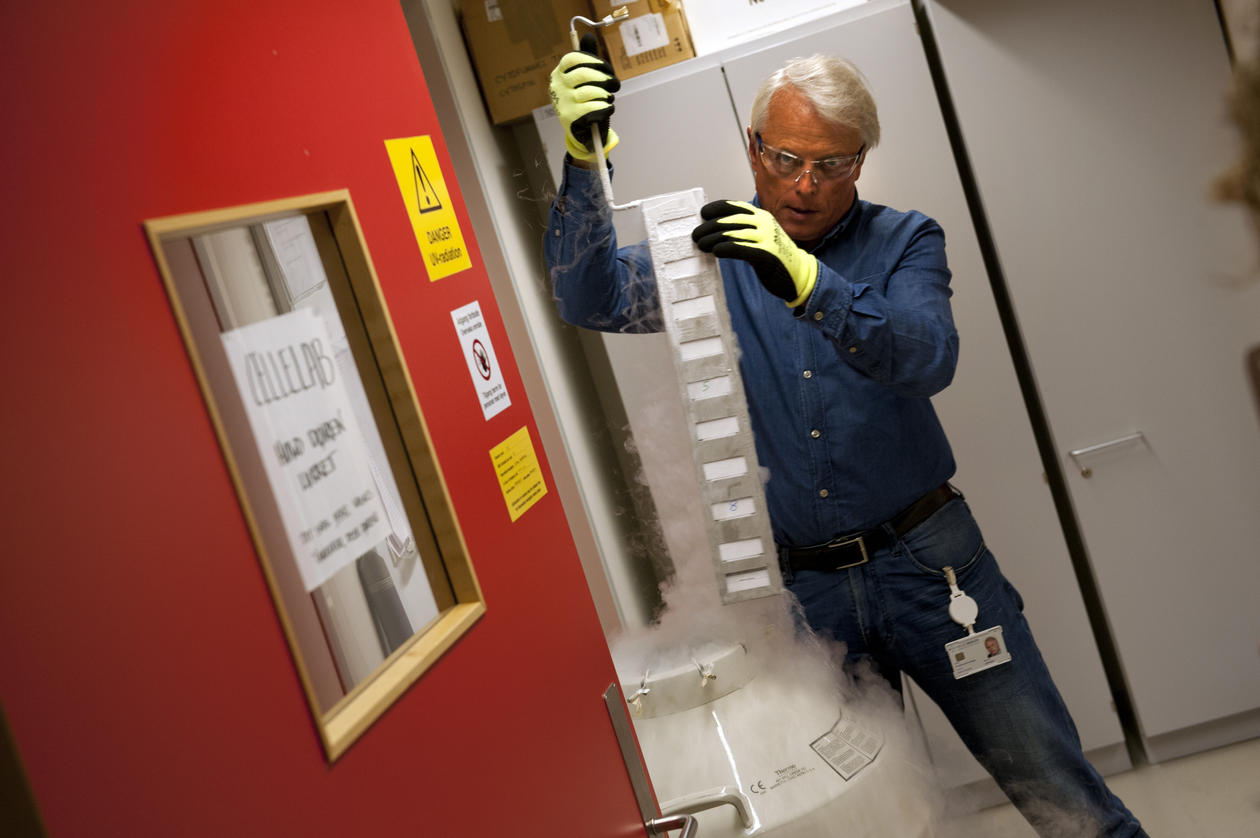Vision
Chemoresistance remains the main obstacle to cure in most cancer forms. At the Mohn Cancer Research Laboratory, our main focus is to identify the mechanisms of therapy resistance and to use this knowledge as a platform for improved therapy.
Main content
Chemotherapy has improved outcome and overall survival in many cancer forms. Regrettably, for many patients, their cancer develops resistance toward therapy. As for today, our knowledge regarding the mechanisms of therapy resistance in cancer patients is limited; thus, we do not know how to prevent nor how to overcome resistance. Cancer originates due to accumulation of mutations and we anticipate that therapy resistance in general is caused by mutations in particular genes regulating key mechanisms in cell survival.
Each cell in the human body is regulated by the products of 22.000 genes. Out of these, less than 1.000 are considered of critical importance to cancer. To analyze for gene mutations is work-demanding and costly. However, while we previously used to analyze genes individually, novel technologies allow the analysis of several thousand genes in concert.
Our research program focuses on translational and clinical studies, in which we carefully collect tumour tissue samples for genetic analyses. By doing so, we aim to identify key mechanisms regulating sensitivity and resistance toward different types of therapy.
The results from these studies may have significant implications: in a short-term perspective, they may identify predictive factors, allowing individual therapy selection within the armamentarium of treatment regimens currently available. In a long-term perspective, our vision is to develop novel, more effective strategies, allowing successful treatment for tumours for which no cure is available by contemporary standards.
